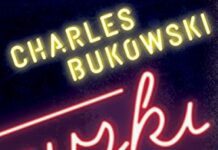
Ebook Info
- Published: 2002
- Number of pages: 384 pages
- Format: PDF
- File Size: 1.92 MB
- Authors: Charles Bukowski
Description
Screams from the Balcony is a collection of letters chronicling Charles Bukowski’s life as he tries to get published and work at a postal office, all while drinking and gambling.
User’s Reviews
Editorial Reviews: From Publishers Weekly This wonderful collection of letters chronicles Bukowski’s life from his first days as a poet having meager success through his resignation from his postal job to pursue writing as his sole source of income. In between, the letters reveal in raw and uncensored fashion how a hard-drinking, hard-living man followed his own vision of poetic truth and artistic integrity. Earlier letters are written to the few editors, poets and admirers who had become aware of Bukowski’s wild poetry. In them, we see the 40-year-old author struggling to make ends meet through an alcoholic stupor of which he is neither ashamed nor apologetic. We read of his thrill as his first book appears– directly in the aftermath of the assassination of JFK. Even as his fame grows and his friends are convinced that he has made it, Bukowski remains in ill health and financial insecurity. The honesty, humor and lack of pretension in these letters make them a must for Bukowski fans and an engaging read for anyone interested in literary lives. Reproductions of letters and an afterword by Cooney round out the volume nicely. Copyright 1993 Reed Business Information, Inc. About the Author Charles Bukowski is one of America’s best-known contemporary writers of poetry and prose and, many would claim, its most influential and imitated poet. He was born in 1920 in Andernach, Germany, to an American soldier father and a German mother, and brought to the United States at the age of two. He was raised in Los Angeles and lived there for over fifty years. He died in San Pedro, California, on March 9, 1994, at the age of seventy-three, shortly after completing his last novel, Pulp.Abel Debritto, a former Fulbright scholar and current Marie Curie fellow, works in the digital humanities. He is the author of Charles Bukowski, King of the Underground, and the editor of the Bukowski collections On Writing, On Cats, and On Love.
Reviews from Amazon users which were colected at the time this book was published on the website:
⭐I didn’t think I’d find another Buk. I liked as much as ‘Notes’ & ‘Love is a Dog’, but the unadulterated, excerpted rants in this volume give such a great view, that’s just THAT much more pure than his ‘fiction’. It’s awesome to see story ideas & themes from his other books coming forward in his mind as his friends & colleagues encourage him to write novels. This is the first book of Buk. letters I’ve gotten, so I can’t offer comparisions, but I’ll definitely be getting more. Love it.
⭐As the title say, it’s an interesting read. But mostly if you’re a hardcore fan of Bukowski’s work… It’s a book about his letters afterall.
⭐Another Bukowski written book. Buy it and read it. You too will become a fan.
⭐Many of his letters are great! Some of them are just as brilliant as his best poems. I was tempted to put them in Buk form on the page. Most readers, who bemoan his present inability to write poems due to death, should go to his letters and glean what is occasionally contained within.Thanks to Seamus Cooney for editing Bukowski’s letters.
⭐This truly is a great book, a must for Bukowski fans and a book to which I have found myself returning many times over the years. It starts off very sedate in the 60s, with a meek Bukowski writing well-mannered letters to people from small presses, but he gathers in steam and anger as the book goes along until by halfway through he is writing endless drunken stream-of-consciousness scream-of-semiconsciousness ramblerants to all and sundry, using his typewriter as a machinegun to fire syllabic bullets and howl from his cage and keep a small part of himself alive.The uncensored inebriated letters he composes are brilliant, funny and poignant and erudite and poetic and stupid and depressing in turns, and he unfailingly tells the truth, no matter what the subject under discussion. His prized loner status is somewhat undermined by the sheer volume of mail he sends, a deeply shy man for whom correspondence is obviously extremely important, his way of communicating with the world and staying relatively sane. But his letters are never aloof or self-conscious, pouring out of the man without being labored over or pretentious.Seeing reproductions of his artistic letters, full of spelling errors and covered in doodlings of his, is illuminating too. What ultimately comes out of this excellent volume, and the two following it, Living On Luck and Reach For The Sun, is a portrait of a man who simply HAS to write or he will explode. He veers close to suicide in places, as evidenced in grim letters to Sherri Martinelli (a volume of letters to her, Beerspit Night And Cursing, has also been published, and displays a cultured side of Bukowski rarely shown to male correspondents) but by the end of the volume he has quit the post office and is ready to take on the wordwork world. And the rest is history. This is a great book and I would highly recommend it to anybody. The End.
⭐Bukowski’s letters of the 1960s are filled with the passion and energy of the time. It was an age of rebellion and recklessness, and in this period Bukowski’s own writing really came of age; you can feel the confidence growing in page after page. His friends were legion, and so many of them seemed to have kept his letters you sense that even then, they knew they were holding on to something special, even if mass fame wouldn’t come to CB for another decade or more.During the time Bukowski was also writing numerous letters to the Beat poet Sheri Martinelli, who had also been the long distance muse to Ezra Pound when he was locked away safely in St Elizabeth’s in Washington DC. Both sides of their correspondence have been published and are worth looking into, because how often are we privy to the intimate exchanges of a pair of genius minds?
⭐Some of the letters were quite repetitive but what was interesting were the insights into the poetry scene at the time and the small publishers. Bukowski corresponded with many good writers and it would have been interesting to read some of their responses. It also showed how cutthroat and jealous writers can be about other writers. Bukowski was generally loyal but did not mind criticizing the work of friends if he thought it deserved it. Of course most of the journals and magazines he was published in in the early days are all gone now which is a bit sad. Some of the letters were very dark, some funny but most were interesting although a bit repetitive. Some of his poetry collections were the same but the humanity,sadness and humor was always apparent.
⭐Reading his personal correspondence gets boring.
⭐Right on time, pretty darn good copy
Keywords
Free Download Screams from the Balcony: Selected Letters 1960-1970 in PDF format
Screams from the Balcony: Selected Letters 1960-1970 PDF Free Download
Download Screams from the Balcony: Selected Letters 1960-1970 2002 PDF Free
Screams from the Balcony: Selected Letters 1960-1970 2002 PDF Free Download
Download Screams from the Balcony: Selected Letters 1960-1970 PDF
Free Download Ebook Screams from the Balcony: Selected Letters 1960-1970


